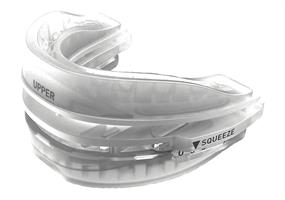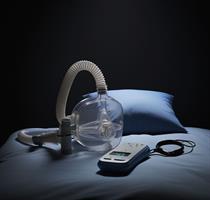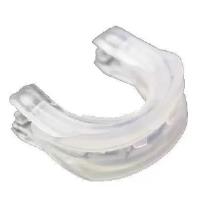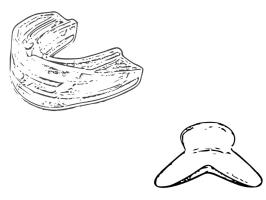Are you struggling with sleep apnea and searching for the best treatment option?
There are two primary choices: Continuous Positive Airway Pressure (CPAP) therapy and mouthpieces.
But how do you determine which one is right for you? In this blog post, we’ll delve into the pros and cons of each treatment to help you make an informed decision about your sleep apnea management in the context of “CPAP vs mouthpiece”.
Join us as we compare CPAP and mouthpieces, examining their effectiveness, convenience, and suitability for different cases of sleep apnea.
Let’s explore these treatment options and find the best solution for your restful nights in the cpap vs mouthpiece debate!
Key Takeaways
-
Sleep apnea is a serious sleep disorder that can lead to severe health consequences and should be treated with sleep medicine.
-
CPAP therapy is the gold standard for treating sleep apnea, offering numerous benefits but also some drawbacks such as discomfort and noise.
-
Mouthpieces offer an alternative solution for those with mild to moderate cases of sleep apnea, providing comfort, convenience and potential resolution of symptoms. They may not be suitable in all cases so consulting a healthcare provider is recommended.
Understanding Sleep Apnea
Sleep apnea is a prevalent sleep disorder characterized by pauses in breathing during sleep, with obstructive sleep apnea (OSA) being the most common type, caused by airway obstruction.
Imagine the frustration of trying to sleep while your airway is repeatedly blocked, causing you to gasp for air and wake up frequently throughout the night. Not only does this lead to poor sleep quality, but it can also result in severe health consequences if left untreated.
There are two main types of sleep apnea: obstructive sleep apnea, caused by the obstruction of the airway due to throat tissues, and central sleep apnea, characterized by a disconnect between the brain and the muscles responsible for breathing. In some cases, patients may have a combination of both types, known as Complex Sleep Apnea Syndrome.
No matter the type, it is crucial to treat sleep apnea effectively, including the use of sleep medicine, to enhance sleep quality and overall health.
CPAP Therapy: The Standard Treatment
CPAP therapy is the most efficacious treatment for sleep apnea, and it’s considered the gold standard by many sleep specialists. The therapy involves the use of a machine that provides continuous positive airway pressure to maintain an open airway during sleep.
Keeping the airway open, CPAP therapy successfully mitigates sleep apnea, improves sleep quality, and lowers the chances of chronic illnesses.
The CPAP machine is designed to deliver a steady flow of pressurized air to prevent the airway from collapsing during sleep.
Many CPAP machines come equipped with features such as heated humidifiers to alleviate dryness, ramp modes for gradual pressure settings, and auto-detection features to initiate and stop therapy upon mask removal. Proper care and maintenance will ensure your CPAP machine remains in good working condition. On average, CPAP machines typically last five to seven years before needing a replacement..
While CPAP therapy is highly effective for treating moderate to severe OSA, it may not be the best choice for every individual. Some people with mild to moderate OSA might be offered the choice between an oral appliance and CPAP.
Knowing the advantages and disadvantages of CPAP can help you make an informed decision about which therapy is most suitable for you.
CPAP Pros
CPAP therapy boasts numerous advantages, such as:
-
Successfully treating sleep apnea
-
Improving respiration
-
Decreasing the risk of cardiovascular issues
-
Enhancing sleep quality and energy levels
-
Leading to improved cognitive function and weight management
By utilizing CPAP correctly, patients will experience reduced likelihood of developing chronic illnesses such as cognitive, memory and attention issues, high blood pressure, stroke, cardiovascular disease, and diabetes.
In addition to reducing the risk of chronic illnesses, CPAP therapy can also alleviate unpleasant symptoms like:
-
Snoring
-
Sore throat
-
Headaches
-
Daytime sleepiness
The benefits of CPAP therapy extend beyond just treating sleep apnea, making it a comprehensive solution for individuals suffering from moderate to severe OSA.
CPAP Cons
Despite its effectiveness, CPAP therapy has some potential drawbacks. One of the most common complaints is the discomfort caused by the mask, which may lead to some patients not using CPAP consistently. The noise generated by the machine can also be disruptive to sleep for some individuals.
Additionally, CPAP therapy requires electricity and can be more challenging to use during power outages or when traveling to remote locations. Side effects like nasal congestion are also common among CPAP users. Considering the benefits and drawbacks of CPAP therapy is important when deciding on the optimal treatment for your sleep apnea.
Mouthpiece: An Alternative Solution
For those who find CPAP therapy challenging to tolerate or have mild to moderate sleep apnea, a mouthpiece may be a viable alternative.
Mouthpieces, also known as oral appliances, work by positioning the lower jaw forward to facilitate breathing. These devices are customized by a qualified dentist, who works with the patient’s physician to determine if oral appliance therapy is a suitable option.
Mouthpieces can be more convenient and comfortable than CPAP therapy, making them an attractive option for individuals who struggle with PAP therapy or have difficulty using it regularly. The New York Times suggests that a mouthpiece “may be a good alternative” for those who prefer not to use a CPAP machine. However, bear in mind that mouthpieces may not be as potent as CPAP for severe sleep apnea cases.
Mouthpieces, also known as sleep apnea mouth guards, offer a drug-free, easy-to-carry, and cost-effective solution for treating sleep apnea. In fact, over one-third of patients will resolve their snoring and sleep apnea problems completely with a mouthpiece.
Let’s explore the different types of sleep apnea mouthpieces, their pros and cons, and how they compare to CPAP therapy.
CPAP Safety and Hygiene
The FDA has made many notices about the safety and hygiene consequences of using CPAP devices. Phillips has been the biggest offender. This is another reason to use a mouthpiece for OSA and snoring.

>> Check out SnoreRx Plus, our favorite snoring mouthpiece! <<
Types of Sleep Apnea Mouthpieces
MADs and TRDs are two kinds of sleep apnea mouthpieces. They serve different purposes and have their own advantages and disadvantages.
MADs are oral appliances that work by advancing the position of the mandible, enlarging the airway, and reducing airway resistance to facilitate breathing. On the other hand, TRDs utilize suction to hold the tongue in a forward position while sleeping, potentially reducing pauses in breathing, improving blood oxygen levels, and reducing daytime sleepiness.
Both MADs and TRDs can be effective in treating sleep apnea, but their comparative efficacy varies. While TRDs might be less reliable in treating OSA compared to MADs, you should consult a sleep specialist to determine the best type of mouthpiece for your specific needs. Moreover, it’s not recommended to use generic mouth guards sold online, as they are not typically effective in treating sleep apnea.
Mouthpiece Pros
Mouthpieces have several advantages over CPAP therapy. They are:
-
Non-pharmaceutical
-
Portable
-
Cost-effective
-
Equally as effective as CPAP in treating mild to moderate sleep apnea
Many individuals find mouthpieces to be more manageable and comfortable than CPAP machines, leading to increased compliance with treatment.
Furthermore, the use of a mouthpiece can provide several benefits, including:
-
Maintaining an open airway
-
Decreasing interruptions in respiration
-
Enhancing symptoms of sleep apnea
-
Decreasing snoring
-
Providing an alternative to CPAP machines
-
Potentially aligning teeth
These benefits make mouthpieces an attractive option for those struggling with mild to moderate sleep apnea or those who cannot tolerate CPAP therapy.
Mouthpiece Cons
While mouthpieces offer numerous benefits, they also come with potential drawbacks. As mentioned earlier, mouthpieces may not be as effective as CPAP therapy for severe sleep apnea cases. Some users may experience jaw discomfort or require a tongue stabilizing device to address side effects or issues with the mouthpiece.
Regular follow-ups with a dentist or healthcare provider are vital to adjust the mouth guard, ensure a secure and comfortable fit, and address any potential side effects. By working closely with a healthcare professional, you can ensure the best possible outcome with your chosen mouthpiece.
Choosing the Right Treatment: Factors to Consider
When selecting a treatment for sleep apnea, several factors should be taken into consideration:
- First, consider the severity of your sleep apnea, which is categorized according to the number of apneic episodes per hour of sleep.
- Mild sleep apnea is classified as 5-15 episodes per hour.
- Moderate sleep apnea is classified as15-30 episodes per hour.
- Severe sleep apnea is classified as more than 30 episodes per hour. Treatment options may vary depending on the severity of your condition.
- Second, take into account your personal comfort and preference for each treatment option.
- Some individuals may find CPAP therapy uncomfortable or challenging to tolerate, while others may prefer the convenience and comfort of a mouthpiece.
- Choosing a treatment that you can use consistently is key to effectively manage your sleep apnea.
- Finally, consider your medical history, comorbidities, and lifestyle factors when selecting a treatment for sleep apnea.
- Certain medical conditions may make specific treatments more or less suitable for your needs.
- Consult with a healthcare professional to ascertain the most appropriate treatment for your sleep apnea based on your individual conditions, especially in moderate sleep apnea cases.
How to Get Started with Your Chosen Treatment
To get started with your chosen sleep apnea treatment, follow these steps:
-
Consult a sleep specialist for a proper diagnosis and personalized recommendations.
-
Whether you choose CPAP therapy or a mouthpiece, your sleep specialist will guide you through the process of initiating treatment.
-
Address any concerns or questions you may have with your sleep specialist along the way.
Upon receiving a diagnosis and treatment plan, following your healthcare provider’s recommendations and consistently using your chosen treatment is fundamental. Regular follow-up visits with your healthcare provider will help ensure the effectiveness of your treatment and address any issues that may arise.
Long-Term Management and Monitoring
Long-term management and monitoring of sleep apnea treatment involve regular follow-up visits with your healthcare provider to ensure the effectiveness of your chosen treatment and address any potential issues. Periodic assessments of your sleep apnea symptoms and any new symptoms that arise from wearing a mouthpiece or using a CPAP machine are crucial to maintaining your overall health and well-being.
Adhering to your treatment plan and maintaining regular communication with your healthcare provider enables effective management of your sleep apnea, leading to improved sleep quality and overall health.
Remember, treating sleep apnea is an ongoing process, and staying committed to your treatment plan is vital to achieving the best possible outcome.
Verdict: Is A Mouthpiece Right For You?
A mouthpiece may be the right choice for those with mild to moderate sleep apnea who cannot tolerate CPAP therapy. However, consulting a sleep specialist for personalized advice regarding your unique situation is critical.
A sleep specialist can offer tailored recommendations to assist you in finding the most suitable treatment option for your sleep apnea.
In conclusion, both CPAP therapy and mouthpieces can be effective treatment options for sleep apnea. The choice between the two ultimately depends on the severity of your condition, personal comfort, and lifestyle factors.
By working closely with a sleep specialist, you can determine the best treatment plan for your needs and enjoy the benefits of improved sleep and overall health.
Summary
In this blog post, we’ve explored the pros and cons of both CPAP therapy and mouthpieces as treatment options for sleep apnea. CPAP therapy, as the gold standard, is highly effective for moderate to severe sleep apnea cases, while mouthpieces can be a convenient and comfortable alternative for those with mild to moderate sleep apnea or who cannot tolerate CPAP therapy.
Ultimately, the decision between CPAP and a mouthpiece depends on your individual needs, preferences, and the severity of your sleep apnea. By consulting a sleep specialist and considering the factors discussed in this post, you can make an informed decision about your sleep apnea treatment and take the first step towards better sleep and improved health.
Frequently Asked Questions
Is a mouthpiece better than a CPAP machine?
MADS may be more effective than CPAP in mild to moderate sleep apnea cases, while CPAP tends to be more effective in cases involving obesity. However, it is best to consult a doctor to determine which device is most suitable for an individual's condition.
Can a mouthpiece replace a CPAP machine?
A sleep mouthguard can be a successful alternative to a CPAP machine, as it shifts your jaw into a position that clears the airway while still providing relief of sleep apnea symptoms for a good night's rest.
Are mouthpieces good for sleep apnea?
Sleep apnea mouth guards can be an effective alternative to CPAP, providing benefits such as reducing apneas or hypopneas, and significantly improving blood oxygen levels. However, for severe cases of sleep apnea, CPAP is still the most effective option.
Can I use both a mouthpiece and a CPAP machine simultaneously?
Yes, it is possible to use both a mouthpiece and a CPAP machine simultaneously for treating obstructive sleep apnea.
How often should I replace my sleep apnea mouthpiece?
It is recommended to replace your sleep apnea mouthpiece every one to two years.
References
- Effective Apnea-Hypopnea Index ("Effective AHI"): A New Measure of Effectiveness for Positive Airway Pressure Therapy. https://pubmed.ncbi.nlm.nih.gov/27568799/
- Efficacy versus Effectiveness in the Treatment of Obstructive Sleep Apnea: CPAP and Oral Appliances. https://aadsm.org/docs/JDSM.2.4.175.pdf
- Mouthpiece, CPAP Prove Best for Sleep Apnea https://www.medpagetoday.com/primarycare/sleepdisorders/27971
- For Sleep Apnea, a Mouth Guard May Be a Good Alternative to CPAP https://www.nytimes.com/2021/05/31/well/mind/sleep-apnea-treatment-mouth-guard.html






